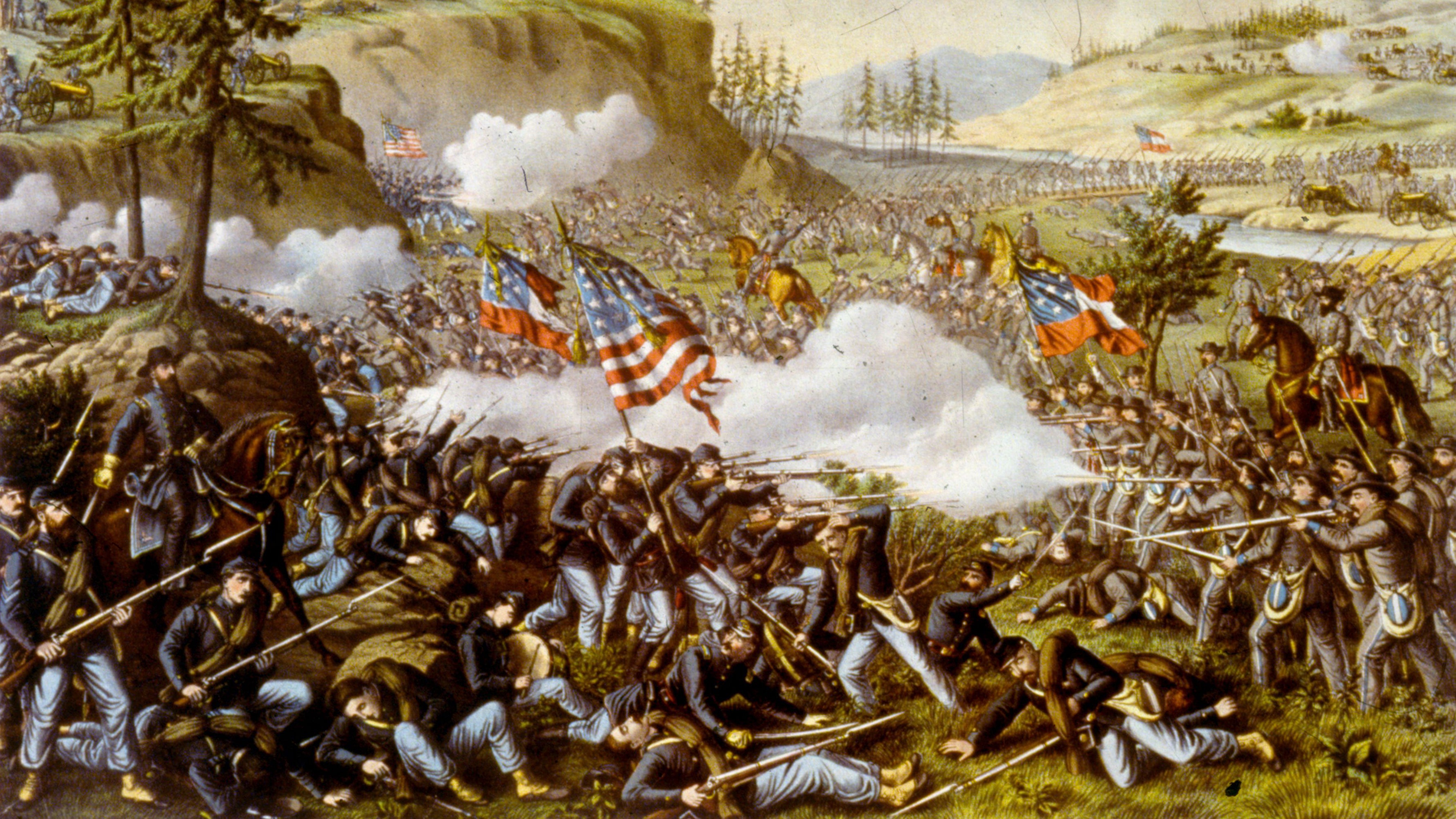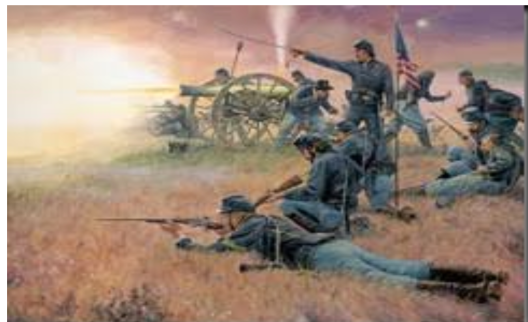Unveiling the Significance of the Battle of Chickamauga

Discover the historical importance and impact of the Battle of Chickamauga, a pivotal moment in the American Civil War.
The Prelude to the Battle
The Battle of Chickamauga, which took place from September 18 to 20, 1863, was preceded by a series of strategic movements and engagements. The Union Army, led by Major General William Rosecrans, aimed to capture Chattanooga, a crucial Confederate supply hub. The Confederate Army, commanded by General Braxton Bragg, sought to defend the city and repel the Union forces. The prelude to the Battle of Chickamauga involved various maneuvers and skirmishes as both sides positioned themselves for the decisive clash.
In the weeks leading up to the battle, General Rosecrans successfully outmaneuvered General Bragg, forcing the Confederate Army to retreat. However, Bragg managed to regroup and strengthen his forces, setting the stage for a major confrontation. The prelude to the Battle of Chickamauga showcased the strategic prowess and determination of both Union and Confederate commanders, as they prepared their armies for a critical engagement.
The Battle of Chickamauga: A Turning Point
The Battle of Chickamauga proved to be a turning point in the American Civil War. It was one of the bloodiest battles of the conflict, resulting in over 34,000 casualties. The battle was fought in the forests and fields of northern Georgia, near the Chickamauga Creek. The Confederate Army launched a series of devastating assaults on the Union Army, pushing them back and inflicting heavy losses.
However, the Union Army managed to hold its ground and prevent a complete rout. The resilience and determination of the Union soldiers, combined with the strategic leadership of General George H. Thomas, earned them the nickname 'Rock of Chickamauga'. The battle ended in a Confederate victory, but the Union Army's ability to maintain a defensive stand prevented the complete collapse of their position. The Battle of Chickamauga marked a significant turning point in the war, as it boosted Confederate morale and demonstrated the Union Army's resilience.
Key Figures and Strategies
The Battle of Chickamauga involved several key figures and strategies that shaped its outcome. General William Rosecrans led the Union Army, implementing a bold flanking maneuver to outmaneuver and surprise the Confederate forces. His plan initially succeeded, forcing General Bragg to retreat. However, communication breakdowns and confusion among Union commanders during the battle hindered their efforts to maintain a cohesive defense.
On the Confederate side, General Braxton Bragg commanded the Army of Tennessee, skillfully utilizing the dense terrain and exploiting the Union Army's vulnerabilities. His aggressive assaults and relentless pressure on the Union lines ultimately led to their collapse. Additionally, the Confederate cavalry, led by General Nathan Bedford Forrest, played a crucial role in disrupting Union supply lines and causing chaos in the rear.
The Battle of Chickamauga showcased the importance of effective leadership, communication, and adaptability on the battlefield. The strategies employed by both sides, as well as the actions of key figures, influenced the outcome of the battle and its lasting significance.
Implications and Aftermath
The Battle of Chickamauga had significant implications for both the Union and Confederate forces. For the Confederacy, the victory at Chickamauga boosted morale and provided a much-needed respite from a series of defeats. It also allowed General Bragg to maintain control of Chattanooga and continue his operations in the region.
However, the battle also revealed the challenges faced by the Confederate Army. Despite their victory, they suffered heavy casualties, and their inability to fully defeat the Union Army allowed the Union forces to regroup and reinforce their positions. The Battle of Chickamauga set the stage for the subsequent Union victory at the Battle of Chattanooga, which led to the Confederate evacuation of the city.
For the Union Army, the Battle of Chickamauga highlighted the importance of coordination and communication among commanders. The defeat served as a wake-up call, prompting a reevaluation of their strategies and tactics. It also demonstrated the resilience of the Union soldiers and their ability to withstand a powerful Confederate assault.
The aftermath of the battle saw both sides consolidating their forces and preparing for future engagements. The Battle of Chickamauga had a profound impact on the course of the war, shaping subsequent military operations and strategies.
Legacy and Commemoration
The Battle of Chickamauga left a lasting legacy in American history. It is remembered as one of the deadliest battles of the Civil War, with its significance extending beyond the immediate military outcome. The battle site, now preserved as Chickamauga and Chattanooga National Military Park, serves as a poignant reminder of the sacrifices made by those who fought there.
The legacy of the battle also extends to the individuals who participated in it. Key figures such as General George H. Thomas, who played a pivotal role in the defense of the Union Army, are remembered for their bravery and leadership. The Battle of Chickamauga is commemorated through various monuments, memorials, and reenactments, ensuring that its historical importance is preserved and honored.
In conclusion, the Battle of Chickamauga holds immense significance in the context of the American Civil War. From the prelude to the battle, to its turning point, key figures and strategies, implications and aftermath, and its enduring legacy, the Battle of Chickamauga remains a pivotal moment in history. Understanding its historical importance allows us to appreciate the sacrifices made by those who fought and sheds light on the profound impact of the conflict on the nation.
If you want to learn more, there will be a reenactment of the Battle in Lafayette, Ga on September 22-24. Check out https://chickamauga160.com/ for more information.

